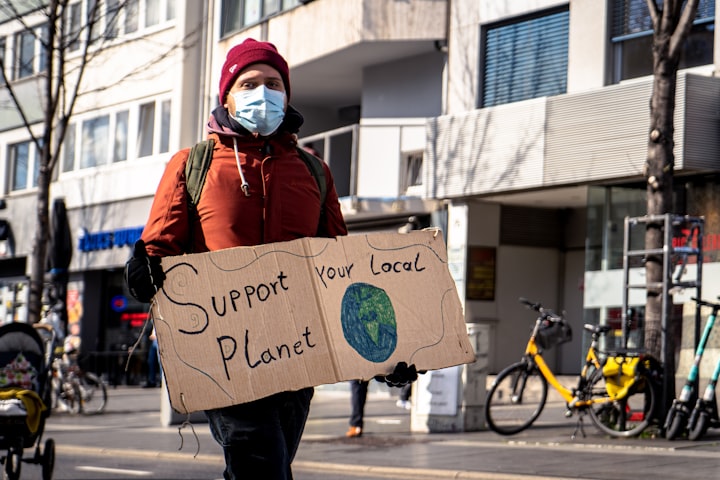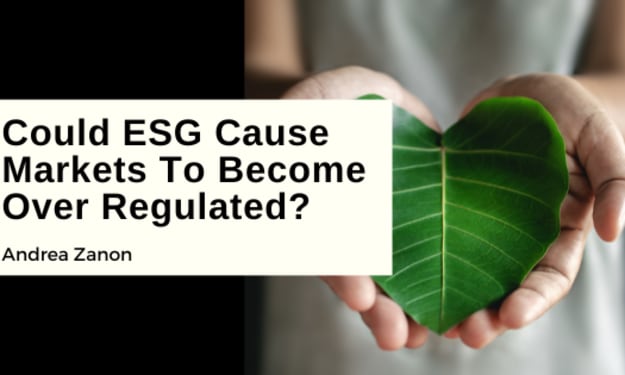The Climate Agenda promoted by the Climate Summit Conference of the Parties (COP26) causes negative externalities
The Paris Climate Agreement, will cause prices to rise across thousands of byproducts of crude oil. Additionally, the energy prices may stay high throughout 2022 as the supply side will be slow to catch up.

On November 1st, over 100 World Leaders met at Glasgow, UK for the two weeks COP26 Climate Summit to address the Climate Crisis and keep the 2015 Paris Climate Agreement alive. The COP26 was expected to be the most important and impactful environmental gathering since the Paris COP 2015. The key objective of the Paris agreement is to keep the global temperature below 1.5 degree Celsius as compared to pre-industrial level.
As this high highly politicized summit took place, most countries attending continue to be in a quasi-recession caused by the global Covid 19 pandemic that started in 2020. The pandemic caused losses of approximately $8.5 trillion in output since then amounting to about 10% of global GDP. With this background, both crude oil and natural gas have hit a seven-year high, with crude hitting $ 85 dollar a barrel while consumers in the United States are paying a dollar more for gasoline than they did in 2020. In the EU, reference prices for natural gas have quadrupled in just six months and are likely to stay at these levels until the end of the winter. In Germany, inflation increased to the highest level in 28 years because energy prices rose by 18.6 percent in October, making everything more expensive. Bank or America expects crude oil to reach $120 a barrel by June 2022, that is 40% increase from current prices. As I write this piece crude oil is trading at $75 a barrel, with an upward trend seeking to return to $80 a barrel. These rising prices have caused inflation pressure in food, health, energy, and transportation and other services, weighing heavily on consumers who are feeling the pain. In the US and in the EU, inflation is already moving between 4 to 5 per cent and it is growing at the fastest rate in thirty years.
Linkages between oil and inflation: Oil prices and inflation are interlinked, and as crude oil prices increase, a general rise in the price of goods and services throughout the economy follows. As money supply continues to increase and President Biden seeks to secure approval from Congress for an over-ambitious climate investment package (as part of the original 3.5 trillion-dollar Infrastructure Bill), crude oil prices could be driven to a new all-time high. As energy companies aim to return to the pre 2020 production levels, the Fed will continue to expand its money supply, potentially accelerating further inflation. In this market, demand for crude oil and gas exceeds supply. This is in part due to increased reduction of new production and exploration due to the increased ESG (Environmental, Social and Governance) compliance, disclosure, and climate regulation pressure. This in turn, will keep commodity prices high adding more inflation and thus potentially slowing down the economic recovery.
The pressure on oil companies to reduce oil and gas exploration and adapt their business models to a low-carbon world has increased significantly since the Paris Climate Agreement was signed in 2015, and as of recently, the climate debate has inflated considerably the interest in ESG. This has slowed down the coming on stream of new oil and gas projects keeping in the ground new resources due to fear of new regulations and increased public scrutiny. Energy companies are making these cuts because they want to save financial resources and return more money to shareholders through higher dividends. This, in turn, raises the price of these energy’s companies’ stock, which enriches everyone involved.
The resulting reduced supply will generate negative supply side externalities, which Deutsche Bank summarizes as follows: ‘ESG is a negative supply shock that internalizes the climate costs of the production of goods and services. This negative supply shock should be inflationary until technological advances absorb these costs. ” As a result, oil companies may not be able nor willing to bring more crude to market because of the new ESG positive trend. Furthermore, banks since the beginning of Covid 19, are less willing to finance crude oil infrastructure investment, driving up the cost of capital while crippling the oil infrastructure. We must accept that, in the short term at least, we will pay more to meet the Paris Climate Agreement, as this will cause prices to rise across thousands of byproducts of crude oil. Additionally, the energy prices may stay high throughout 2022 as the supply side will be slow to catch up.
What’s next? The positive momentum around decarbonization, climate finance, and ESG regulation coming out of the COP26, will increase the risk of runaway inflation, resulting in short term hyperinflation trend. Furthermore, the energy crunch will slow down economic recovery, while also affecting the nascent green energy revolution. Unfortunately, as nations struggle to enhance their energy security, climate pledges and decarbonization become secondary as countries are struggling to supply national end users and businesses cost effective energy services. Rest assure though, change is coming, and regulation correction, climate cost, and technology innovation will create the bases for a new and more dynamic global economy. ESG will continue to grow as an investment and will certainly be one of the winners coming out the climate debate.
About the Creator
Andrea Zanon
Andrea Zanon is an international sustainable development and empowerment specialist who has dedicated his life to reducing poverty, promoting sustainability and empowering ambitious people






Comments
There are no comments for this story
Be the first to respond and start the conversation.